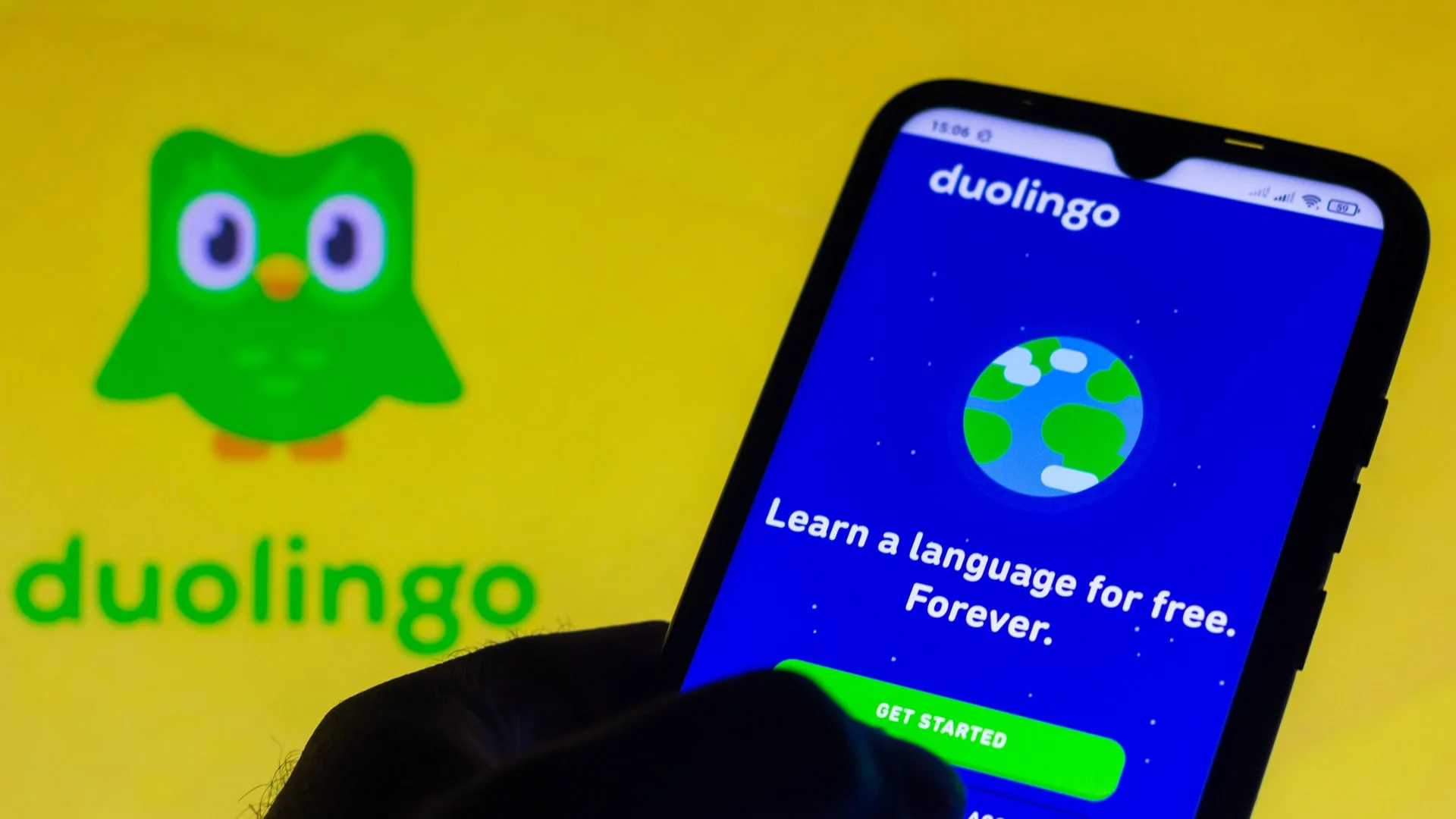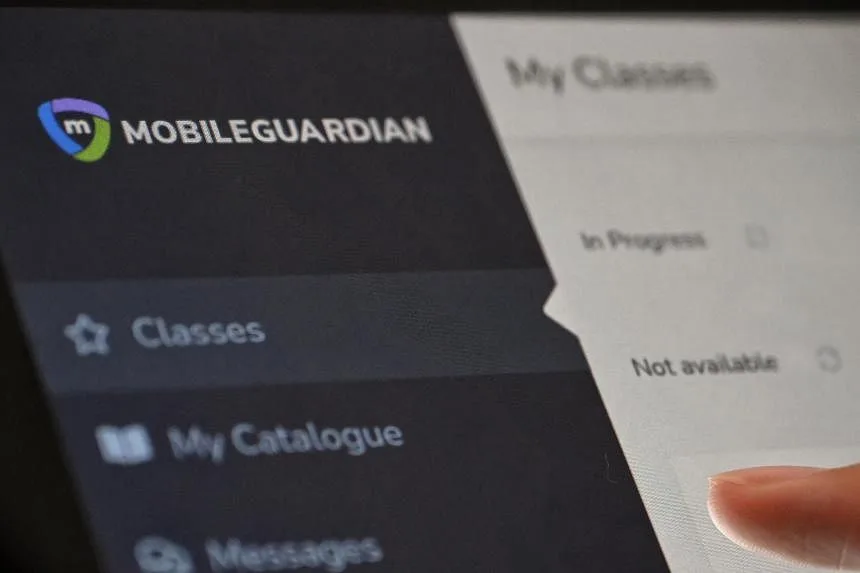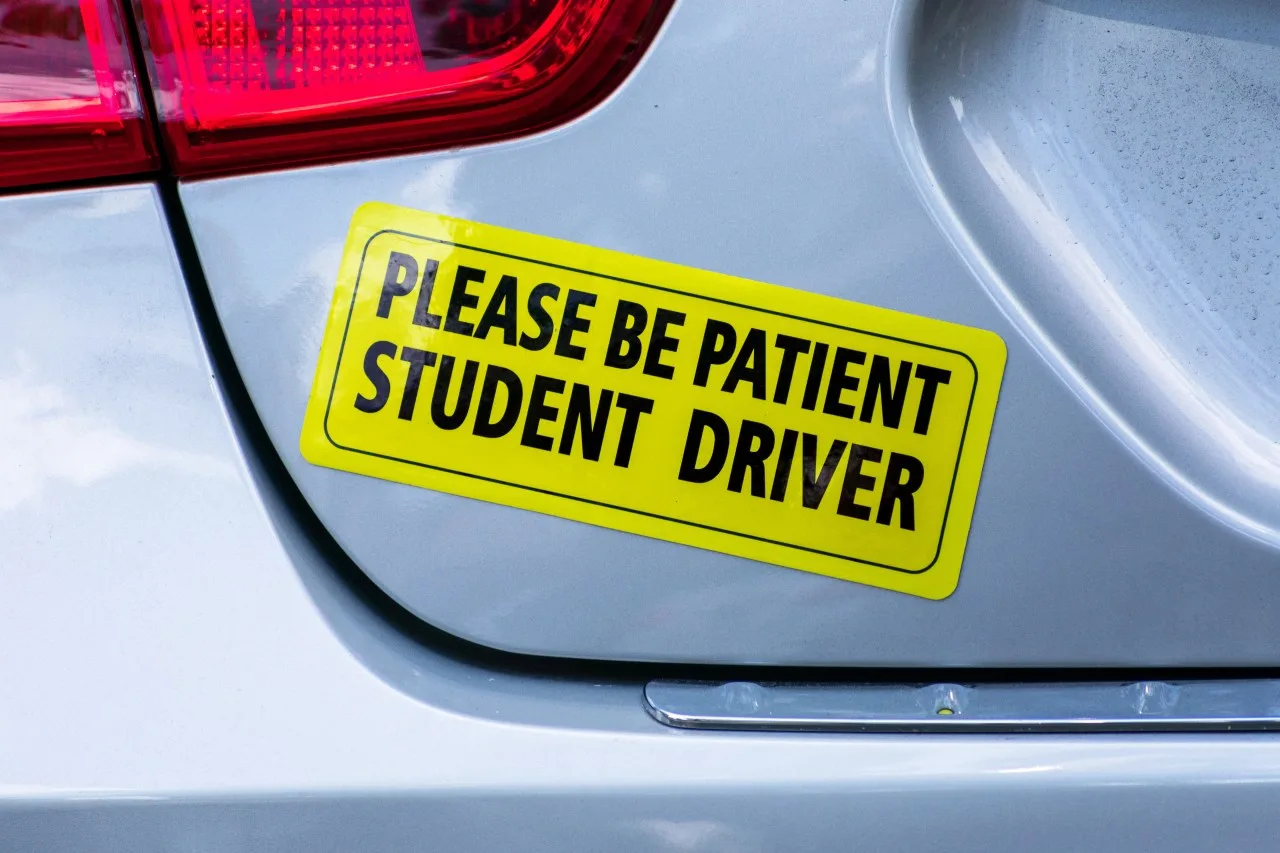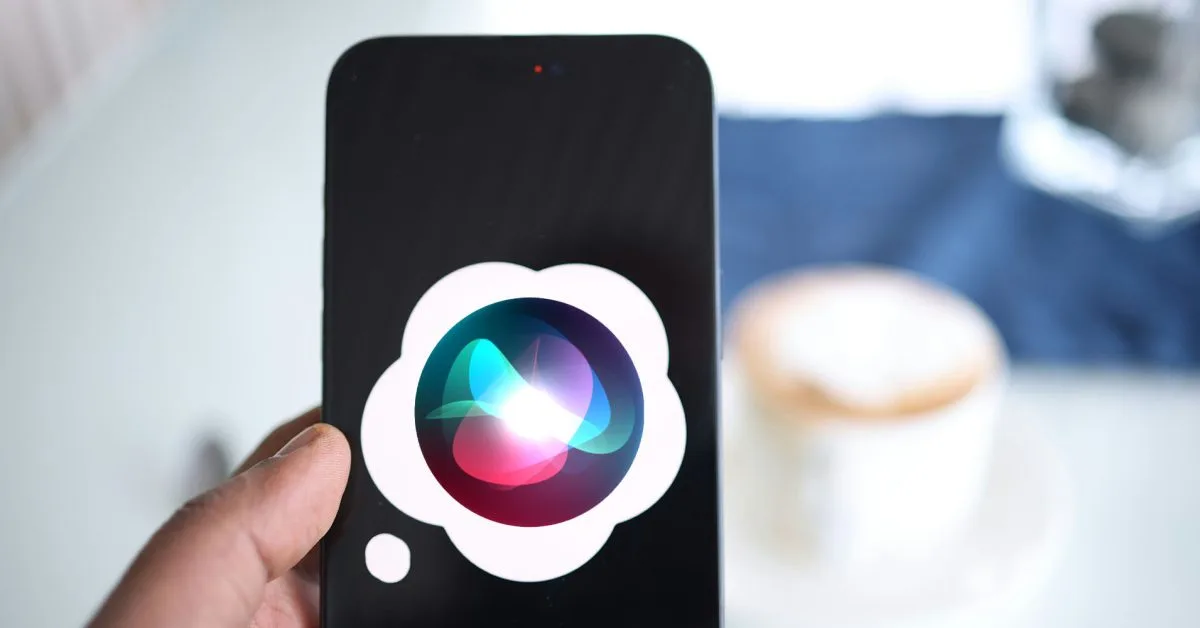Gaming tablets offer more than just a screen for play. These devices need to juggle productivity features and entertainment options to make their prices worthwhile, all while still offering a high quality gameplay across a variety of genres. That’s why costs can rack up so quickly on these purpose-built devices, you’re getting specs that don’t typically make their way into everyday tech. However, many mainstream tablets are well suited to your thumb-tapping titles, and with the advent of cloud gaming they’re only getting more and more useful as time goes on.
If you’ve outgrown your gaming phone , or need something more versatile than a gaming handheld , there are plenty of options out there for you. Not only that, but the best gaming tablets are starting to rival gaming laptops for their performance and value for money these days. If you’re looking to invest in a high-end device there’s some seriously exciting stuff on the table right now.
The quick list
Best overall
Best overall
This is the gaming tablet for those who mean business. Packing a full Windows 11 setup and an RTX 3050 graphics card, this 13.4-inch slab is a full PC in itself.
Read more below
Best mid-range
Best mid-range
The iPad Air sits in the middle of Apple’s tablet lineup, but it’s also the best mid-range option on the market. You’re getting that powerful M1 processor and a 10.9-inch display.
Read more below
Best budget
Best budget
The Amazon Fire HD 10 is one of the cheapest gaming tablets worth buying, and still manages to pack a 10.1-inch display of solid quality into its price point.
Read more below
Best Apple
Best Apple
Packing a 120Hz refresh rate, powerful M2 processor, and the option for a massive 12.9-inch display – there’s plenty to love here.
Read more below
Best Android
5. Samsung Galaxy Tab S8 Ultra
Best Android
Boasting a massive 14-inch display, the S8 Ultra is the largest gaming tablet on our list, and it’s also the best for Android users.
Read more below
The best gaming tablet overall
1. Asus ROG Flow Z13
The best gaming tablet overall
Specifications
Operating system: Windows 11
Screen: 13.4-inch, 1920 x 1200, 60Hz, 30ms
CPU: Intel i5-12500H / i7-12700H / i9-12900H
Storage: 512GB / 1TB
Rear camera: 8MP
Front camera: 720P HD
Weight: 2.6 lbs (1.18kg)
Reasons to buy
+
Unrivalled tablet specs and performance
+
2-in-1 form factor
+
Versatile design
+
Solid build quality
Reasons to avoid
–
Can buy far cheaper laptops
–
Shorter battery life
The Asus ROG Flow Z13 goes where no gaming tablet has gone before. This is a hybrid tablet and Asus gaming laptop , packing Intel’s 12th generation processors and an RTX 3050 Ti graphics card.
Buy it if:
You want the power of a PC in tablet form: With Windows 11 you can play anything you would on a PC here – and that’s not something we can say for other entries on this list.
You need a flexible option for a full setup: The Z13 can function as a tablet, or slap on the keyboard for a full laptop. Hook it up to an Asus ROG eGPU and you’ve got a powerful PC to boot.
You see yourself upgrading to an eGPU in the future: It’s going to cost a pretty penny to grab the eGPU at the same time as the Z13, but if you see a future where you’re using the external dock for desk-based play, this is an excellent first step.
Don’t buy it if:
You already have a gaming laptop: The Z13 is an expensive alternative to a gaming laptop, so if you’re after something to compliment the PC you already have you can save some cash with a cheaper model.
Battery life is important: With all that power at the helm, the battery inside doesn’t hold up to something like a Samsung or Apple model.
Design: The ROG Flow Z13 is certainly chunky – and it’s the heaviest tablet you’ll find listed here. That’s because it’s got the components of a full PC to work with, though, so it’s actually surprising it’s not too heavy. One-handed use might be out of the question but this is still an incredibly portable device. Not only that, but we particularly enjoyed the subtle RGB window into the circuitry on the back – a premium touch that lets the whole world know exactly what this tablet is being used for.
Features: There’s the whole world of PC gaming at your fingertips here thanks to Windows 11, which means more games and services open to you than any other gaming tablet on this list. Using the Asus ROG Flow Z13 in both tablet and laptop mode was a dream, with a responsive magnetic keyboard and a sturdy kickstand to keep everything safe.
Performance: We found that RTX 3050 Ti GPU to struggle a little in our testing, but you’ll still get far better performance than in other multi-purpose devices. It’s important to note that this is an incredibly well engineered piece of kit. Our unit had an i9-12900H processor under the hood with that latest generation graphics card, 16GB RAM, and a 1TB SSD – all working together to offer some serious performance without the temperature and noise concerns of similar slimline devices. While the price point will lock many out of this luxury experience – and won’t be worth it for those after a laptop – this is certainly the best gaming tablet on the market right now when it comes down to sheer power.
Verdict: While we struggled to recommend it as a gaming laptop in its entirety (this thing is particularly expensive), those on the hunt for a high-end gaming tablet with PC-level performance should definitely take note.
Read more: Asus ROG Flow Z13 review
The best mid-range gaming tablet
2. iPad Air (2022)
The best mid-range gaming tablet
Specifications
Operating system: iOS
Screen: 10.9-inch Liquid Retina (2360 x 1640)
CPU: M1
Storage: 64GB / 256GB
Rear camera: 12MP wide
Front camera: 12MP
Weight: 1.02lb (461g)
Reasons to buy
+
Lightweight
+
Powerful M1 processor
+
Larger screen
Reasons to avoid
–
Storage options are limited
Apple’s latest iPad Air lives in the Goldilocks ‘just right’ zone of the best gaming tablets. Thanks to a reasonable price – for Apple, anyway – and oodles of power beneath a chic design, it’s everything you could want from a mid-range device.
Buy it if:
You want a solid all-round level of power: With the Apple M1 chip but fewer extra features to boost the price tag you’re getting enough power for everyday play without inflating the price tag.
You don’t need the extra features of the Pro: If you’re not fussed about boosted refresh rates, won’t need bags of storage, and don’t mind a few extra mm on your chassis, it’s well worth sticking to the Air model.
You don’t want to spend more than $600 / £600: The Air’s price is still considerable – this is Apple we’re talking about – but these things last. If you’re investing long term but don’t want to push too close to $1,000 / £1,000 it’s an excellent option.
Don’t buy it if:
You want a 120Hz display: Only the Pro models offer a slicker 120Hz refresh rate display at the time of writing, so if you’re after smoother motion handling you’d be better off upgrading.
256GB is too much, but 64GB is too little: The Air annoyingly omits the 128GB storage option from its catalogue, which means the configurations on offer might not suit your needs.
Design: The Air follows the same design language of most iPads released recently. The squared off sides, flat back, and range of color options give it a lightweight profile with a nice level of personalization at checkout. Of course, everything feels sturdy here – we’ve managed to drop ours several times over the last couple of years and everything is fine.
Features: As the fifth version of the iPad Air, this one has plenty of feathers in its cap. Besides that revolutionary M1 processor, it offers a handsome 10.9-inch Liquid Retina display that’ll show off your games, movies, and TV shows at their best. Because there’s no home button, that screen has a bit more real-estate to play with as well.
Thanks to compatibility with Apple’s own keyboard and trackpad, the Air is also giving you the functionality of an iPad Pro without the associated price tag. That makes it an excellent choice for those who don’t want to destroy their bank balance for the best of the best, but equally aren’t keen on budget alternatives.
Performance: The iPad Air often surprises us in its performance offerings. With that M1 processor at the helm, the majority of larger big releases can run smoothly with settings turned down and you’ll be able to enjoy all the App Store’s triple-A content as well. The lower refresh rate display compared to the Pro model does mean motion isn’t handled quite as well, but considering the Pro’s price we’re not arguing. With a solid battery life, bright, crisp display, and an impressive set of speakers there’s already plenty to love here.
Verdict: While some older 2020 models are still hanging around on the shelves, we’d recommend keeping a closer eye on the 2022 version. It’s the best mid-range gaming tablet on the market right now, and while you could pick up an older processor for around $70 less during a good discount the value of that M1 makes the extra investment worthwhile.
The best budget gaming tablet
3. Amazon Fire HD 10
The best gaming tablet under $150 / £150
Specifications
Operating system: Fire OS
Screen: 10.1 inches, 1920 x 1200
CPU: Mediatek MT8183 Helio P60T
Storage: 32GB / 64GB
Rear camera: 5MP
Front camera: 720P HD
Weight: 1.03 lbs (465g)
Reasons to buy
+
Low entry level price point
+
Excellent value for money
+
Solid display quality
Reasons to avoid
–
Not as powerful as Apple or Samsung
–
Limited in OS
–
Can be ad-heavy
If you’re on the hunt for a cheap gaming tablet that will see you through your favorite mobile games alongside web browsing and streaming, then the Fire HD 10 is really all you need.
Buy it if:
You’ll make use of Fire apps: If the games you want to play have been converted into Fire apps you’re golden here.
You want a 10-inch display without the price tag: Those after a gaming tablet for the big screen alone will do best with this cheaper model, you’re getting a 10-inch display without the cost.
You play lighter titles on the go: This isn’t a tablet for more heavy duty gaming, so it’s best suited to those who play lighter titles.
Don’t buy it if:
You want a productivity machine as well: Navigating between apps is tricky and there are few productivity-oriented features supplied by the Fire app store.
You’re tied to Google Play or Apple App Store: Of course, if the games you want to play aren’t offered by Amazon, you’re going to need to opt for a different system.
Design: The design is basic, you’re picking up a black slate with a screen after all. With thicker bezels than you’ll find on more expensive models, and a plastic construction this doesn’t feel like a premium product. It doesn’t need to, though, it’s a cheap chassis to hold everything you need at a price that won’t break the bank.
Features: You’re picking up a high quality screen that will help your games shine and plenty of internal power for a smooth experience in lighter titles. That’s considerable value for money, especially considering just how often these devices go on sale. While the MSRP stands at $149.99 for the 32GB model, that’s by no means the cheapest you can find these tablets during sale events. Those speakers are a little tinny and you won’t find the slickest touchscreen experience on the market here, but it’ll certainly do for budget light gameplay.
Performance: The Amazon Fire HD 10 can do what it does very well. Running games from Amazon’s own Fire selection feels slick and smooth, with very few bumps along the way. While navigation between apps can feel a little more cumbersome, once you’re there you’re good to go. Trying to push the Fire HD 10 past anything lighter will leave you with a few stutters though – this one’s for thumb tappers on the big screen.
Verdict: The Amazon Fire HD 10 is perfect for those who need a decent Minecraft or LEGO Star Wars machine but don’t need to sink pay cheques into an investment. Sure, you won’t be getting the gut-busting performance of a dedicated device like the Asus ROG Flow Z13, or the premium finish and experience of an iPad Pro – but you’re not spending anywhere near the costs of those devices.
Best Apple gaming tablet
4. iPad Pro (2022)
The best Apple gaming tablet
Specifications
Operating system: iOS
Screen: 11-inch Liquid Retina (2388×1668) / 12.9-inch Liquid Retina XDR (2732×2048)
CPU: Apple M2
Storage: 128GB / 256GB / 512GB / 1TB / 2TB
Rear camera: 12MP Wide, 10MP Ultra Wide, LiDAR Scanner
Front camera: 12MP
Weight: 1.03lbs (466g) / 1.5lbs (682g)
Reasons to buy
+
Incredibly versatile
+
Features mouse support
+
Powerful chipset
Reasons to avoid
–
Far more expensive than other Apple options
Want the best Apple gaming tablet possible? You can’t beat the new generation of iPad Pro.
Buy it if:
You want the best iPad gaming experience possible: The iPad Pro isn’t just a gaming machine – it’s more of a productivity tool – but it does offer the best gaming experience on an Apple tablet yet as a by-product.
A 120Hz refresh rate is a must: Those chasing super slick motion will need to be looking at the Pro – it’s the only iPad offering that 120Hz speed.
You also need a tablet for work: As mentioned above, this is a device built for multi-tasking through demanding workflows first and foremost, so if you’re after a tablet for work this will be your first reason to buy – gaming will often come second.
Don’t buy it if:
You won’t make the most of those specs: If you don’t need a tablet for productivity and streaming as well, then there’s little reason to splash out on an iPad Pro just for gaming.
You’re on a stricter budget: These devices carry some hefty price tags, so if you’re working with a smaller budget you’ll be looking further down the price scale.
Design: There’s no doubt about it, the iPad Pro is gorgeous. Between its sleek chassis and that giant XDR display staring up at you, these are seriously good looking devices. Of course, you’re getting the durability and craftsmanship you would expect from an Apple device (just watch those corners if you’re not using a bumper case), and a couple of different muted aesthetic options to choose from.
Features: With a powerful Apple M2 processor, trackpad and keyboard functionality, and a truly gorgeous Liquid Retina display with ProMotion technology, this is one of the best gaming tablets on the market by a long shot. Elsewhere, the new Pro offers a dual-camera setup and lidar sensors. These boost the performance of augmented reality apps by allowing the iPad to better judge distances. When combined with an excellent Liquid Retina screen that’s perfect for games and movies, FaceID, and compatibility with the must-have Apple Pencil, this is pinnacle tech.
Performance: That M2 processor boosts nearly every aspect of the iPad Pro experience, including the performance of your games. That means you’ll load up titles faster, experience less lag, and your device will manage its battery far better when playing intensive software as well. The 120Hz refresh rate display also comes in mighty handy when running faster titles, keeping up with your framerate beautifully for super slick gameplay.
Verdict: The iPad Pro isn’t going to be used solely as a gaming tablet for the vast majority of buyers. Instead, this is an all-in-one productivity machines with the best gaming chops among Apple devices. It’s an investment, but if you need a creative tablet for media editing, demanding workflows, and impressive gaming you’re all set.
iPad 10.2 (2021)
The best cheap Apple gaming tablet
Specifications
Operating system: iOS
Screen: 10.2-inch Retina (2160 x 1620)
CPU: A13 Bionic
Storage: 64GB / 256GB
Rear camera: 8MP
Front camera: 1.2MP FaceTime HD
Weight: 1.07lbs (487g)
Reasons to buy
+
More affordable
+
Excellent screen quality
+
Classy design
Reasons to avoid
–
Storage options are limited
You don’t need an iPad Pro to experience everything Apple tablets have to offer. Its entry level cousin is brilliant in its own right, and the 2021 iPad 10.2 (9th generation) is an excellent budget all-rounder.
Buy it if:
You play a few lighter games: The 9th generation model will get along with App Store games and the odd lighter streamed title best.
You primarily want to browse the web and stream: If you need an everyday device for web browsing, streaming, and lighter note taking, there’s no reason to spend more on the expensive features you won’t use in other models.
You’re on a tighter budget: These tablets have dropped as low as $249 in the past, which means you’re getting excellent value if you’re working with a smaller budget.
Don’t buy it if:
You play more demanding games: If you need to run a Triple-A title from the App Store you might have a harder time pushing the iPad to keep up.
You want to multi-task: With a weaker processor and a smaller screen, the 9th gen model can’t compete with more expensive devices for those who need to multi-task with split-screen.
You want to use the Apple Pencil 2nd Gen: Being an older device, the 9th generation iPad is only compatible with the first generation Apple Pencil.
Design: The 9th generation iPad follows a slightly older Apple design language, with larger bezels at the top and bottom of the screen, a physical home button (with fingerprint reader), and a gently sloped back. It still feels like a luxury device, though, thanks to the solid construction and matte finish on the back.
Features: Thanks to an A13 Bionic chip with more than enough grunt to handle most games, it offers everything you need – and then some – from an everyday tablet. Plus, that 10.2-inch Retina display makes sure everything looks its best at all times. What’s more, this iPad makes up for its lack of storage options and a disappointing selfie camera by being compatible with the Apple Pencil. The latter is a revelation for artists and doodlers alike, responding to pressure in a way that blows many digital drawing pads out of the water. A 20W plug also means the iPad 10.2 also charges much faster than earlier versions.
Performance: The older A13 chip isn’t going to give Apple’s M1 a hard time, but it can still keep up with everyday thumb tapper games and plenty more larger titles from the App store. You might not experience such fast loading times as more expensive models, and the slightly smaller 10.2-inch Retina display doesn’t offer as much real estate or color depth as the Air model. However, for everyday note-taking, streaming, and App Store titles it’s a solid machine.
Verdict: The 9th generation iPad still feels premium, with a bright screen, solid processing performance, and a solid chassis design. It’s perfect for lighter use with that Apple flair, just without the crippling price tag to match.
Best Android gaming tablet
Image 1 of 3
(Image credit: GamesRadar / Brendan Griffiths)
(Image credit: GamesRadar / Brendan Griffiths)
(Image credit: GamesRadar / Brendan Griffiths)
5. Samsung Galaxy Tab S8 Ultra
The best Android gaming tablet
Specifications
Operating system: Android 12
Screen: 14.6-inch Super AMOLED, 120Hz
CPU: Snapdragon 8 Gen 1
Storage: 128GB / 256GB / 512GB
Rear camera: 13MP wide / 6MP ultrawide
Front camera: 12MP
Weight: 726g
Reasons to buy
+
Gorgeous 14.6-inch display
+
Very thin and light
+
S Pen stylus included
Reasons to avoid
–
Very expensive
–
Keyboard is an additional $350
–
OS holds it back as a laptop replacement
The Samsung Galaxy Tab S8 Ultra is a premium affair, but it’s the best gaming tablet using the Android operating system on the market right now.
Buy it if:
You want as big a screen as possible: With a 14.6-inch display, the S8 Ultra is leading the pack in screen real estate right now.
But don’t want extra bulk in your bag: Considering the sheer size of that screen, it’s excellent to see a super thin chassis design. That means you won’t feel like you’re lugging a massive device around with you.
You want to play games not available on Apple: Of course, Fortnite players will need to opt for this Android operating system.
Don’t buy it if:
You want a laptop replacement: With an expensive keyboard to throw on and OS limitations with Google Play Store, the S8 Ultra isn’t going to replace a laptop for value.
You won’t make the most of that screen space: The massive screen on offer here is going to be excellent for those who will use it. If, however, you won’t be using the S8 Ultra for productivity, it feels a little over the top considering the price it carries.
Design: Day to day, we loved the look and feel of the Tab S8 Ultra when browsing the web and catching up on YouTube content. Again, that larger screen came in clutch, requiring very little scrolling to read longer articles, however did grow a little too heavy when held vertically. We found the whole slab much easier to hold horizontally, when there’s less hardware to create a top-heavy feel, but if you’re after a one-handed device this certainly isn’t it.
Features: Despite not offering a fully fledged OLED display, we were seriously impressed by the black levels on this screen. It’s the largest tablet screen (Asus ROG Flow included) we’ve had our hands on. That makes for a far more immersive experience than you’ll find elsewhere – even if you are paying for that luxury. The speakers pack a serious punch, especially once you switch on Dolby Atmos, you’re getting the S Pen stylus included for note-taking (Apple’s devices require a separate purchase), and you’re also benefiting from task bar app switching as well.
Performance: We were able to maintain a solid refresh rate with Call of Duty Mobile set to max, even if Diablo Immortal struggled to reach the same heights. We would certainly recommend using a mobile controller for these endeavours, though. That larger display makes on-screen controls particularly difficult for anything too taxing, but did make light work of puzzlers like Monument Valley. That massive 14.6-inch display is certainly working hard for you as well, offering up a sense of immersion that can’t be matched by other entries on this list.
Verdict: If you’re after on-the-go Fortnite on a massive 14-inch display, this is where you need to be. It outsizes Apple’s Pro line, and boosts performance over Samsung ‘s regular flagships, making it a go-to if you’re after an all-in-one device for play, streaming, and the odd bit of work.
Read more: Samsung Galaxy Tab S8 Ultra review
Samsung Galaxy Tab A7
The best cheap Android gaming tablet
Specifications
Operating system: Android
Screen: 10.4-inch (2000 x 1200)
CPU: Octa-Core
Storage: 32GB
Rear camera: 8MP
Front camera: 5MP
Weight: 1.04lbs (476g)
Reasons to buy
+
Cheaper Galaxy Tab
+
Fast processor
+
Lightweight
Sure, you can get Android or Apple products that are flashier. But few provide the same level of bang for buck as the Samsung Galaxy Tab A7.
Buy it if:
You play lighter games: The processing power under the hood here is only going to see you through lighter titles, but will do so with aplomb and without breaking the bank.
You prioritize power over screen quality: Screen quality is a sacrifice for this kind of Android-based power, which means those keen on feasting their eyes will need to move further up the price scale.
You’re happy to use a MicroSD for larger files: If you want to run past that 32GB of onboard storage you’re good to go with a MicroSD card. That’s not something we can say of the port-less iPad.
Don’t buy it if:
You play demanding games: Of course, heavier titles just aren’t going to run well on this budget device. If you have a more substantial library it’s worth investing in something more powerful.
Camera quality is a priority: The camera on a gaming tablet as cheap as this was never going to be Instagram worthy, so if you need a device for video meetings or streaming we’d invest elsewhere.
Design: A sleeker design with smaller bezels helps maintain that image of quality; as well as looking modern, the Tab A7 allows more space for a larger screen than the iPad 9th generation. The whole affair is simple but lightweight, with the choice between dark gray, silver, and gold colorways all splashed across a standard but durable feeling back panel. You’re certainly upgrading over the Fire HD 10’s plastic construction here.
Features: You get some cool toys to play with despite cutting costs, too. Namely, the A7 features facial recognition for faster unlocks. After using the feature for a while, it’s difficult to go back. However, we were more appreciative of the good old 3.5mm headphone jack. You’ll also find a MicroSD card slot to boost the 32GB internal storage running along the edge as well. The screen is far behind its siblings, rocking up with a 2,000 x 1,200 LCD panel, which means lower brightness and some odd viewing angle issues. However, you’re still getting a quad speaker and Dolby Atmos for a more cinematic experience.
Performance: While its Qualcomm SM6115 processor won’t be able to keep up with more expensive competitors, the Tab A7 is still miles ahead of cheap and cheerful alternatives. That means it’ll be able to take most games in its stride. Indeed, it’ll only struggle when you ask it to run more demanding software, or lots of programs at once.
Verdict: Anyone looking to save some cash without going down the Apple route should check out the A7. There are some tradeoffs in screen quality, but a 10.4-inch display and a budget-friendly approach means this is one of the best gaming tablets out there for entry level Samsung-ites.
Back to top
What to look for in a gaming tablet
There are a few things to look out for if you’re looking to buy a tablet for gaming purposes, as your shopping list will likely look different to someone buying for work, streaming, or general productivity purposes. Of course, your number one question should be:
What game services does this tablet support?
Different tablets will run on different operating systems, which means you’ll need to check out the games you can actually download and run on your device. While the majority of Apple and Android devices will be able to stream from cloud gaming services like Xbox and Nvidia , it’s worth having a nose through their app stores as well. Apple, for example, offers the Arcade subscription but doesn’t carry Fortnite on its store.
After you’ve found an operating system, it’s time to make sure you’re getting enough juice under the hood to run these games properly. The next question you should ask yourself is:
What processing level do I need?
Yes, the processor is important, but you’re not likely to differentiate much between different models within your price bracket. Unlike PCs and laptops, gaming tablets don’t tend to offer too many configuration options outside of Windows devices. Put simply, the more you pay for your tablet the faster your processor will be. However, you don’t need the fastest chip on the planet to play all your favorite games. If you’re looking to stream some titles and play a few larger games natively, we’d recommend opting for a mid-range price tag – around $400 to $600.
How much RAM do I need?
Some gaming tablets will ship with different amounts of RAM under the hood, however most entry level models will come stocked with 4GB. In tablet form, that’s more than enough to see you through lighter mobile-first games, and you can chug along some heavier titles as well if you’re really looking to push your budget model. However, if you’re serious about using this device as your daily driver, we’d recommend scoping out 6GB or 8GB options.
So you’ve got the perfect operating system with the right level of power. Next you’ll need to make sure your screen can do your gaming tablet justice. Ask yourself:
How much do I want to pay for my screen’s refresh rate?
Brands often use the same displays across their devices, but you can often pay a little more for a 120Hz variable refresh rate display. This screen comes packed with an iPad Pro, for instance. That’s going to give you top shelf motion handling and make sure all your games are pristine. However, it’s a costly affair. At the budget end of the spectrum, we’d recommend making sure you’re getting at least a 60Hz refresh rate for a gaming-focused device.
Best gaming tablet FAQs
(Image credit: Future)
Which budget tablet is best for gaming?
Budget tablets include the likes of the Samsung Galaxy Tab A7, Amazon Fire tablet, iPad base model, and Lenovo M-series devices. Of these brands, we’d recommend picking up an Amazon Fire HD 10 for an ultra-cheap gaming tablet experience, or upgrading to an entry level iPad for the best value if you’re looking to stream and browse the web as well.
What size tablet do you need for gaming?
The best gaming tablets steer away from the smaller 7-inch displays of more entry level devices. That means we’d recommend picking up a screen size of at least 10-inches if you plan on spending a significant amount of time gaming on your tablet.
How much RAM does a gaming tablet need?
Cheaper gaming tablets can ship with as little as 2GB RAM. Because memory is needed far less in a tablet than a laptop or PC, we’d recommend aiming for at least 3GB and hopefully picking up 4GB. Of course, this all depends on your budget, and if you’re browsing in the upper echelons of the market you could be offered up to 16GB, though this is only reserved for more specialised devices.
Want a bigger screen to game on after all? Don’t forget to take a look at the best gaming TVs or our guide to the best OLED TV . No matter whether you’re playing a console game on them or streaming something from Disney Plus , they’ll make your content look its best.
Find out more about all the recommendations we make with our full GamesRadar+ Hardware policy .

